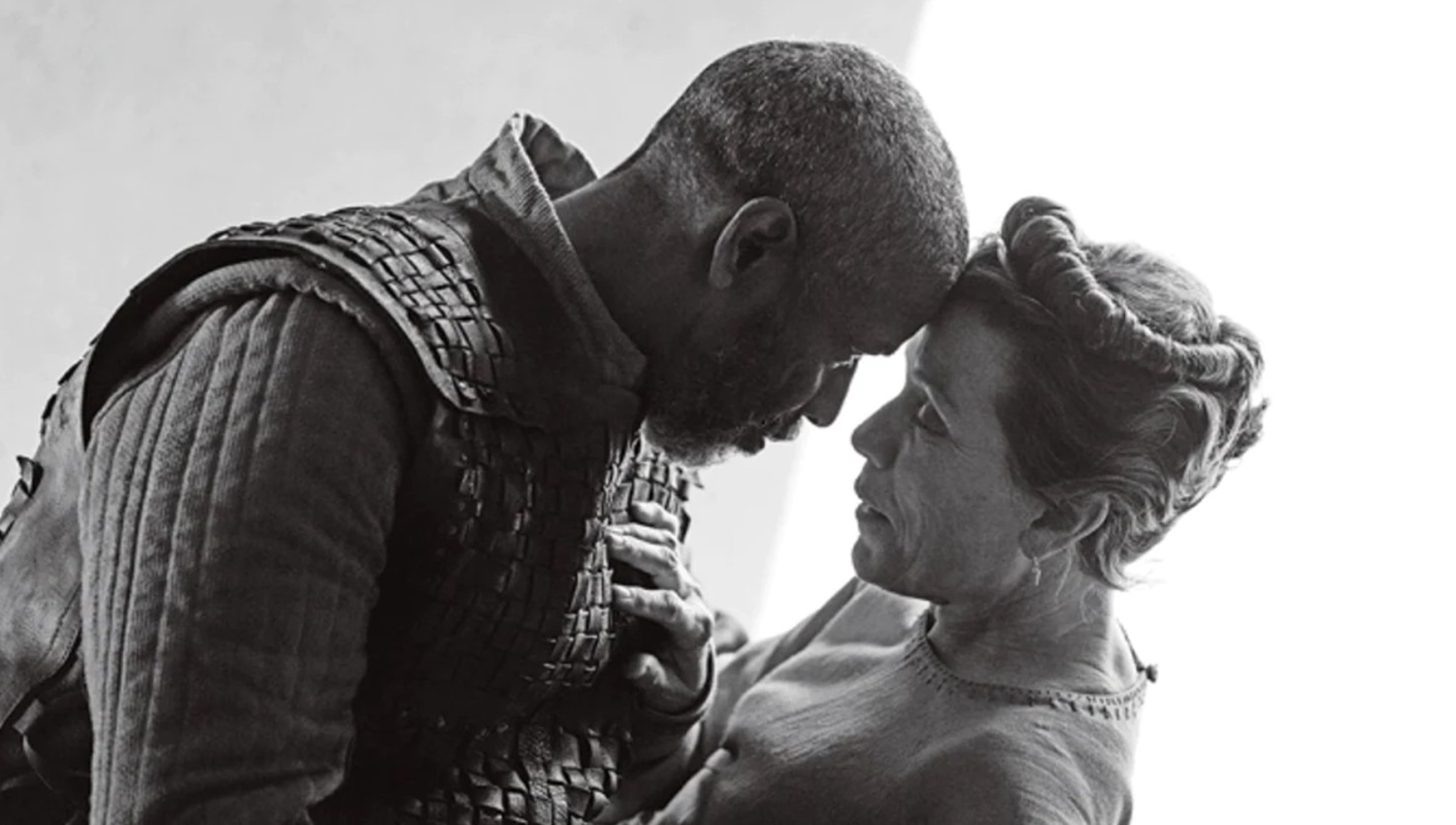
The Tragedy of Macbeth
Dustin Chase
It’s somewhat curious to me that the famed director Joel Coen (usually with his brother Ethan, but not this time) would choose to film a Shakespeare play. We don’t seem to be in the right climate for that now, but I read that his wife, Frances McDormand, had wanted him to direct the Macbeth play for some time. When he finally decided to do it, it was to make a film of it, although it was important to him to maintain a sense of the play.
The two lead actors, McDormand (Lady Macbeth) and Denzel Washington (Macbeth) have both had experience acting in Shakespearean plays, and their renditions of the cadence and verse of the familiar lines appear natural and authentic. Their performances here are award-worthy. The roles played by the supporting actors (Corey Hawkins, Brendan Gleeson, Harry Melling, and Bertie Carvel) are strong as well. The cast and the special effects are the film’s most appealing aspects, a testament to Joel Coen’s direction and production abilities.
The film is black and white, contributing to the intended qualities of starkness and eeriness. When the witches—especially Hecate (Kathryn Hunter)—foretell the future, special effects add emphasis most effectively.
The cast and the special effects are the most appealing aspects of the film, a testament to Joel Coen’s direction and production abilities.
Hunter is such a wonder in contorting her body into seemingly impossible positions that it almost distracts from her prophesies. But clearly, Macbeth remains captivated and convinced that she is telling the truth, that he will one day be king of Scotland. When he is in doubt, he evokes these spirits to reassure him, although, of course, he does not fully comprehend what the prophecies actually say.
Stefan Dechant’s production design was essential to the production. He and cinematographer Bruno Delbonnel created dark, foggy scenes outside and indoors that reflected the required mysteriousness and drama in the plot. Likewise, Carter Burwell’s musical score, with a mix of medieval and modern music sounds, fit with all the different moods and auras of the film.
I was not excited to see a Shakespearean drama, but I became engrossed as I started watching and getting into The Tragedy of Macbeth. Surprising was the little thrills I got when some familiar quotes appeared, and I realized that although I recognized them as Shakespeare, I had forgotten they came from this particular play. Seeing them in context was especially pleasing. I was also charmed by the language at times, such as “Let us not be dainty of leave-taking” when two actors realize they need to disappear post-haste.
Final Thought
Shakespeare is not to everyone’s taste, but for those who still relish it, this impressive production of The Tragedy of Macbeth will surely please.
